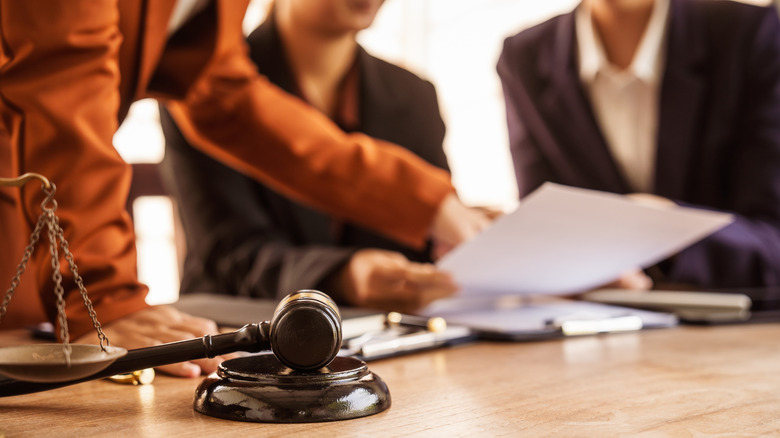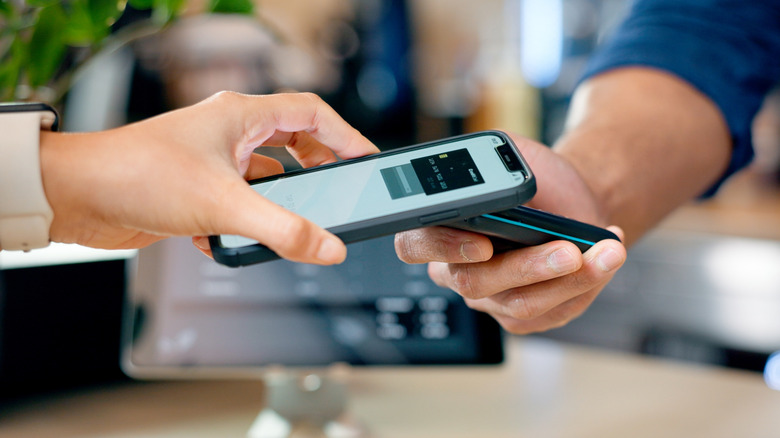This 2025 'Texting' Settlement Could Earn You An Extra $147
Americans lose a terrifying amount of money to scams each year, including an estimated $12.5 billion in 2024, so you should be very careful when it comes to receiving unsolicited text messages. Realistically, you've probably forgotten about the majority of your spam texts, considering that a 2025 report published by CNET showed that 82% of Americans receive at least one each week. However, if you remember receiving an unsolicited spam text from Cash App during the past several years, you might be eligible to receive some money from a class-action lawsuit settlement.
The details of the settlement require Block, the parent company of Cash App, to split $12.5 million among certain users who received text messages they did not request from the "Invite Friends" Cash App feature. Depending on how many people are eligible for the settlement and how many request the money, affected users could receive between $88 and $147 each. The catch is that those eligible for a piece of the settlement must have been residents of Washington state at the time they received the unwanted text. There is also an upcoming deadline of October 27, 2025 to request compensation.
Why is Cash App being sued?
Since at least 2019, Cash App has offered a feature to its users called "Invite Friends." When a Cash App user convinces a friend to sign up for the app, both receive a bonus payment, as long as the new user meets certain criteria. To use the feature, you must give Cash App access to your contact list. You then click a button near the contact's name to send them a solicitation text, through which they can create a Cash App account.
The class-action lawsuit plaintiff, Kimberly Bottoms, lived in Washington state when she received one of these text messages. She filed the suit against Block in November 2023, alleging the unsolicited messages were spam under the definition provided by Washington's consumer protection laws. The case eventually ended up in the U.S. District Court for Western Washington before Block agreed to the settlement. As part of the agreement, Block did not admit that it did anything wrong, claiming it hadn't initiate the sending of these text messages.
As part of the settlement, only people who were residing in Washington state who received a text between November 14, 2019 and August 7, 2025 are eligible for part of the settlement money. Visit the Bottoms v. Block class-action lawsuit website to file your claim before October 27th. You'll need to enter the phone number on which you received the text message, even if you no longer have access to it.
Should you worry about using Cash App?
If you're unfamiliar with Cash App, it's a financial services platform that allows people to send and receive cash, stocks, or bitcoin. There are pros and cons to using money transfer apps like Cash App and Venmo. Despite the potential problems, they are extremely popular, as Cash App saw $248 billion flow through the app in 2023. Another $276 billion in inflows went through Venmo in 2023.
Although you should always take steps to protect yourself and watch out for money scams, the cause of this Cash App settlement doesn't really qualify as a scam. The plaintiff in the case didn't lose any money because of the unsolicited text messages. Instead, receiving the texts was an annoyance that violated state law in Washington. Although some financial scams may originate through Cash App, it's typically safe to use as long as you're engaging in transactions with people you trust.
Cash App is continuing to use the "Invite Friends" feature. If people in another state wanted to sue Cash App for unsolicited texts, they'd have to do so under their state's laws, and the state would need to enforce consumer protection laws similar to those that exist in Washington state. Some legal experts do not believe the plaintiff could have won the case under existing federal telecommunications laws designed to protect consumers from unwanted texts.


